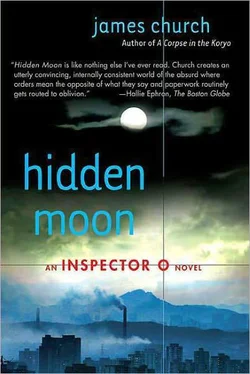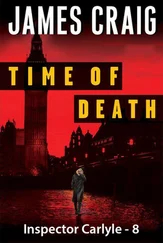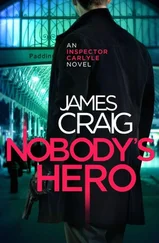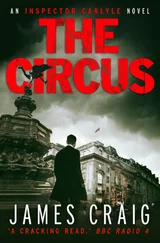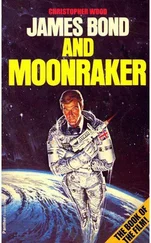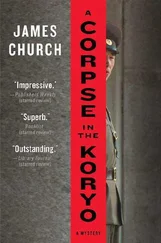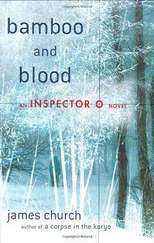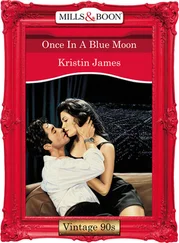James Church - Hidden Moon
Здесь есть возможность читать онлайн «James Church - Hidden Moon» весь текст электронной книги совершенно бесплатно (целиком полную версию без сокращений). В некоторых случаях можно слушать аудио, скачать через торрент в формате fb2 и присутствует краткое содержание. Жанр: Полицейский детектив, на английском языке. Описание произведения, (предисловие) а так же отзывы посетителей доступны на портале библиотеки ЛибКат.
- Название:Hidden Moon
- Автор:
- Жанр:
- Год:неизвестен
- ISBN:нет данных
- Рейтинг книги:3 / 5. Голосов: 1
-
Избранное:Добавить в избранное
- Отзывы:
-
Ваша оценка:
- 60
- 1
- 2
- 3
- 4
- 5
Hidden Moon: краткое содержание, описание и аннотация
Предлагаем к чтению аннотацию, описание, краткое содержание или предисловие (зависит от того, что написал сам автор книги «Hidden Moon»). Если вы не нашли необходимую информацию о книге — напишите в комментариях, мы постараемся отыскать её.
Hidden Moon — читать онлайн бесплатно полную книгу (весь текст) целиком
Ниже представлен текст книги, разбитый по страницам. Система сохранения места последней прочитанной страницы, позволяет с удобством читать онлайн бесплатно книгу «Hidden Moon», без необходимости каждый раз заново искать на чём Вы остановились. Поставьте закладку, и сможете в любой момент перейти на страницу, на которой закончили чтение.
Интервал:
Закладка:
Hidden Moon
James Church
PART I
Chapter One
The afternoon lay strangled in a gloom of Chinese dust. Brown light, brown shadows twisted slowly over a naked riverbed. A kilometer or so beyond-distances were hard to judge against the dim, muddied horizon-a dirt path struggled up a hillside, pulling a reluctant village of broken, brown-roofed houses. A crumbling embankment crept by. A man’s head appeared. His blank eyes stared into the passing windows, then looked away, his face dusty, lungs and mouth and teeth and thoughts all gone to brown dust.
Suddenly, laughter broke out in the coach; a few passengers moved to get a better view. One woman, her voice too loud, shouted, “There!” From nowhere, a flash of color became the shiny red boots of a small girl, her hair flying behind, arms pumping, breathlessly leaping, soaring across a single patch of newly turned, black-furrowed earth. The girl waved, both hands above her head; the passengers clapped and knocked on the windows. The whistle sounded. For a moment, it pierced the shroud, and then, suddenly, it was gone. People returned to their reading, sleeping, drinking tea, anything to make the time pass. The train creaked around a bend; the red boots disappeared from view. One or two watched for another sign of spring, a forsythia bud or the faint feathered green of a distant willow. But there was nothing to see besides the wind, wandering through fields of rotting brown stubble. It was too soon. Even late March was too soon. And there was still too much damned dust in the air.
2
Turning from the window, I realized a man in the aisle was standing quite still, staring at me. He smiled absently when he caught my eye and nodded as if we were acquainted. For a moment, I thought he might sit down and begin a conversation, but he walked past and into the next car without a word. It was hard to tell if he had a limp or if it was just the coach swaying. I settled back to try to sleep, but the image of the riverbed stared from the edge of consciousness. Rivulets of stone fed pebbled ponds; great rivers of rock flowed to a bouldered ocean that never knew the moon. A man was walking along the gravel shore. As he passed he glanced at me, and his sallow face became a sallow sky; the image was unnerving, and worse, it would not go away. I sat up again and looked around, but the man who had been staring at me was nowhere in sight. He had been wearing a brown cloth cap, a workman’s cap, though he didn’t carry himself like a workman. There was something self-assured about him; his smile never broke even when our eyes met. I had felt off guard for an instant, but he didn’t waver; it was as if he had been waiting for me to turn to around, to measure my reaction at being observed.
The more I thought about it, the more I realized that the idle smile on the man’s lips reminded me of a boyhood friend who wore a similar look when listening to the wind in the line of trees that marked the edge of our village. Often I had watched from a distance, wondering why he was smiling. Then one day I realized it wasn’t happiness but despair, a vacant smile attached to nothing, leading nowhere.
My friend, let’s call him Chung, was a year older than I, a head taller, with long legs that gave him a gait I could match only by taking a small hop every few steps. He ran faster, jumped higher, than anyone else in the village. We were neighbors, his house close to my grandfather’s. Chung’s father had been killed in the war, somewhere in the mountains on the east coast in the brutal winter of 1950. His mother never remarried. She was small and maybe a little crazy, a woman who kept to herself and rarely talked to other people except to worry aloud about her son’s health. She need not have bothered; he was never sick.
The summer before Chung and I joined the army together, we were both sent to a large cooperative farm about a hundred kilometers away to help tend the fields. Twice a month, when propaganda teams came by, we could sit on rough benches after dinner to watch a silent film playing shadows on the cracked wall of a whitewashed shed. The crickets sang but then grew still, listening to the click-click-click of the sprockets being torn, one after another, by the old projector. That was how Chung’s eyes flickered when he looked at you, a broken film playing on a hot summer night.
I turned back to gaze out the window. No, I decided, the man in the aisle was a stranger; we didn’t know each other. His smile meant nothing. At last I dozed, until with a groan and hiss of brakes the coaches bumped each other in protest, then came to rest. Stepping down to the platform, I shouldered my bag and made my way to the square in front of the station, wondering where to go to escape the windy gloom that swept the city. I set off toward a small restaurant a few blocks away, near the Koryo Hotel, where they served plain food, simple and cheap, a bowl of soup and, if they had any, a piece of fish. I needed something to wash the dust out of my throat. I needed to sit where the diners ate quietly, a place where, unlike in Beijing, people didn’t chatter loudly to no purpose. The street was deserted; no neon signs assaulted the dark. Two cars passed slowly, their lights off. It felt good to be home.
3
Min stood in the doorway of my office, watching me sand a scrap of oak. It was from the side of a blanket chest we’d found in an apartment abandoned by a smuggling ring. They might have been Ukrainian; we never knew for sure. The place had been empty for weeks. The smugglers knew we were on their trail almost before we realized they existed. It hadn’t bothered me, missing a band of foreign crooks, but the Ministry wasn’t pleased. Everyone who worked on the case eventually found an unflattering note in his file. The gang had used an axe on the blanket chest and on the few other pieces of furniture in the apartment as well. It was their way of telling us to keep our distance. The chest deserved better. I salvaged what I could; no sense wasting completely good oak.
I could tell from the way he fidgeted that Min had something to say. He was waiting for me to acknowledge his presence. After a minute or two, he coughed, a sign of surrender. “Pardon me, Professor.” Min sometimes used mild sarcasm to cover a retreat. “If we’re not too busy, if we’re settled again in the office after our vacation, perhaps we could discuss police business.” He paused for dramatic effect, one last effort to recapture the offensive. “There’s been a bank robbery.”
For a moment the sound of the sandpaper scratched at the quiet afternoon. “ ‘We’ weren’t on a vacation,” I said at last. “ ‘We’ were on a delegation.” I turned the oak over a few times in my hand to check for rough spots before looking up to acknowledge his main point. “A bank what, did you say?”
“The central file must still have you listed as liaison. Why would they send an inspector on a delegation like that?”
“I just go where they tell me, Min.”
“Right. Remind me to check next time I’m near the file room.” He gave me a sly look. “Did you go out to any of those bars? Supposed to be some good places in Beijing.”
I nodded. “Supposed to be. Get yourself on a delegation sometime.”
Min shrugged. “The furthest I ever go is Nampo to deal with drunken sailors. Did I tell you about the one that got left by his captain, off one of those foreign ships?”
“Once or twice.”
“Out of curiosity, what is it you do on those trips? Your reports don’t say.”
“I sit a lot. Give advice.”
“You?”
“People always want to know where other people are. Sometimes they don’t even ask. They walk in, I point.”
Читать дальшеИнтервал:
Закладка:
Похожие книги на «Hidden Moon»
Представляем Вашему вниманию похожие книги на «Hidden Moon» списком для выбора. Мы отобрали схожую по названию и смыслу литературу в надежде предоставить читателям больше вариантов отыскать новые, интересные, ещё непрочитанные произведения.
Обсуждение, отзывы о книге «Hidden Moon» и просто собственные мнения читателей. Оставьте ваши комментарии, напишите, что Вы думаете о произведении, его смысле или главных героях. Укажите что конкретно понравилось, а что нет, и почему Вы так считаете.
